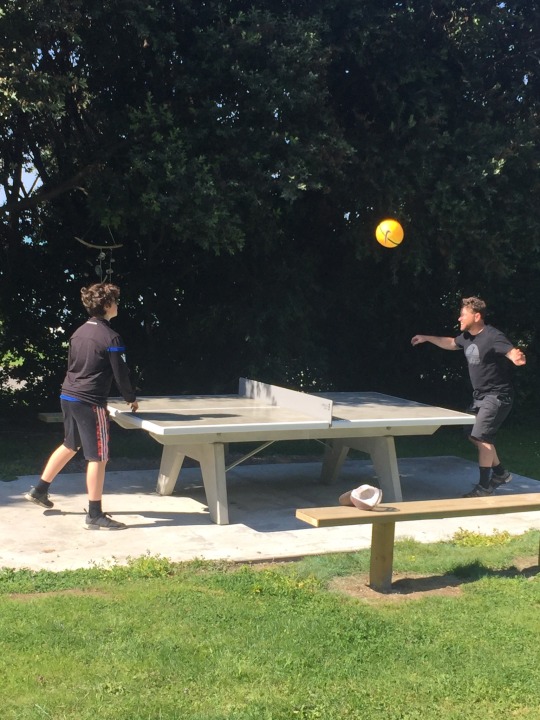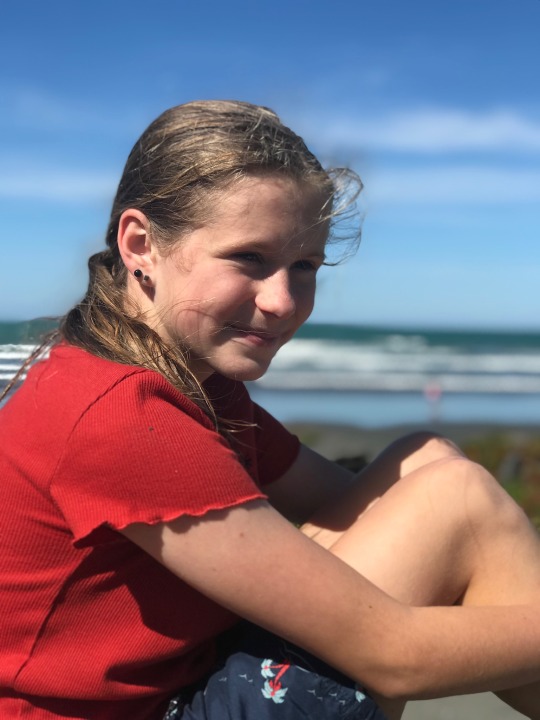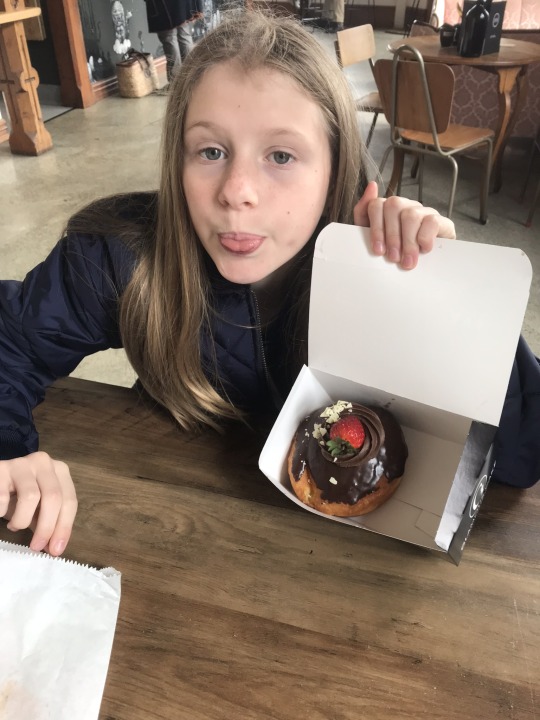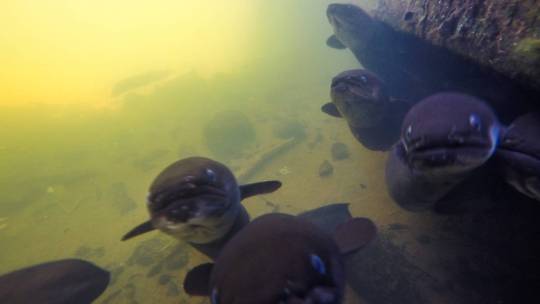#there's been at least twice i expected a bot just to see a real blog
Text
some of these bot urls really make it hard to tell if it’s a bot or not i swear
#☼☽ out of it — ooc.#there's been at least twice i expected a bot just to see a real blog#and the other way around
3 notes
·
View notes
Text
get to know me
I was tagged by @bazementcat! Thanks so much!!
Rules: Answer 20 questions and tag 20 amazing followers you’d like to get to know better!
Name: Anne
Nickname: Don’t really have one. I’m known as “Subbie” to my gamer friends in another corner of the internet (it’s a long story)
Zodiac sign: Pisces Sun, Scorpio Moon, Libra Rising. Pisces Mercury & Venus, Libra Mars.
Height: 179 cm, about 5′10.5″. When I’m wearing any kind of shoe that doesn’t have paper-thin soles I’m probably 5′11″ or more.
Orientation: I’m not 100% sure yet. I know I’m definitely asexual, but as for romantic orientation, I’m still not sure if I’m pan or aro.
Nationality/Ethnicity: I mean, I’m Dutch, as are my parents and grandparents...pretty much just white.
Favourite fruit: I love all fruit except mangoes and passionfruit. I mean I don’t HATE them, I just don’t LOVE them. Other than that, give me ANYTHING. Oh wait, grapefruits. The one fruit I can’t stand is grapefruit.
Favourite season: I feel obligated to say winter because I lowkey love the dark and the cold, and I love snow (as long as I don’t have to travel). But there’s something magical about early spring, too. When it’s still chilly but there’s just the very first signs of life, the sun is starting to come out and the first flowers are popping up, the trees have those little budding leaves. That time of year always gives me a special feeling. Summer can fuck off, I hate warmth and humidity and harsh sunlight, and autumn is Spider Season and I have arachnophobia so I’m just constantly paranoid during those months.
Favourite book: I’m ashamed to say I don’t really have one. I was pretty much a book addict when I was a kid, but I haven’t been able to properly enjoy reading since high school and those hellish reports we had to do. Plus my ADHD has really manifested in recent years and I just...can’t anymore. There’s the obvious Harry Potter and Hunger Games, ooh I did really like Frankenstein...
Favourite flower: lathyrus, narcissus or baby’s breath.
Favourite scent: vanilla, ylang-ylang, “clean” scents like fresh linen or cotton, sea breeze, herbs and spices like cinnamon, cloves or thyme and rosemary.
Favourite colour: black, silver, wine red, deep purple (especially in combination with gold), pretty much every shade of blue.
Favourite animal: any feline, any snake (Slytherin represent), I love sea creatures too.
Coffee/Tea/Hot Chocolate: I love them all, but I try to stay away from coffee because it makes my teeth go even more yellow than they already are, and caffeine is not super great for me. I only drink it in emergencies. I drink tea pretty much every day, especially green tea.
Average hours of sleep: if you leave me to my own devices, I’ll go to bed at 3 AM and won’t get up till at least noon. I try to force myself into a healthy 8-hour schedule. But I’m horrible at getting up in the morning. Mornings are evil.
Cats/Dogs: cats all the way. I’m lowkey a little scared of dogs, but only if they’re big and being really hyper. I can enjoy them if they’re calm. And don’t slobber too much.
Number of blankets I sleep with: currently one, but I expect it to move up to two or three soon. Summer decided to just kind of not this year. At least not in this country.
Dream Trip: honestly, anything right now. It’s been ages since I’ve been abroad. Scotland holds a very special place in my heart, we used to go twice a year when I was younger. But I’d be happy going to England too. London was cool. I’d say Greece too, I’ve been there before and it’s beautiful, but I cannot handle heat at all, so I’d have to go in winter which kind of defeats the purpose of going to Greece. I’ve always wanted to see the fjords in Norway, or go to Iceland. And Japan, if only to honour my 14 year-old weeb self. Though I get really nervous and self-conscious being in a country where I don’t speak the language, it makes me feel like a dumb tourist. Which I am, but still.
Blog created: I made it about 2 years ago, but back then I was a ghost. I followed a bunch of people, but never interacted with posts in any way because I was too damn shy. Didn’t even have a theme or anything (I kind of still don’t lol, I’m too lazy). I only became “active” about 4 months ago.
Number of followers: uhm okay, this is embarassing. I have 4. That are real people anyway, I block porn bots as soon as I see them. But it’s understandable, seeing as I never make any original posts, just reblog stuff. And I don’t really mind. My sideblog has 12, which is more than I ever imagined.
I tag: all 3 of my other followers: @warrior-of-sunlight, @magic-brian, and @littledeathnotefreak
4 notes
·
View notes
Text
Kids and FAQs
And now for my best Terry Gross Impression: If you're just joining me, my guest is Ashley Bass. Ashley moved with her husband and two children from Seattle to New Zealand in May of 2018. In early 2019 she started blogging about her experiences as an expatriate, parent, and regular person living life in a different part of the world. The blog started as the best way she could think of to tell lots of people at one time how the family is doing and what the move had been like, but it turns out it’s also serving as a way to consider and learn from her personal experiences. In this segment, she’ll try to answer some of the Questions she is Frequently Asked by her friends and family.
Welcome back to the program! I started this set of blog posts a few weeks back with “how we got here” and moved on to “where we are.” Now we’re in the “what we are are doing” part of the blog, and to be honest, I have struggled with how to approach it because I have so much to tell you about. At least, so much to tell you about if I work under the assumption that you’re interested in fairly mundane details of a day-to-day life that sounds pretty standard...school, work. travel. sport. exploration. drinks. food. Although, it seems like a fair assumption that you want to hear about it all since you’re reading this blog and anyway isn't that what facebook and Instagram are all about -- constant insight into nothing and everything all the time?!? Well, blogs may be old school but they give me lots of room for detail.
Or maybe you just read this blog for the pictures...? You could just follow me on Instagram (_ashley_bass_), but we live in a world of instant gratification and high expectations, so here!

That’s Jason and James playing header ping pong on a cement table with a soccer ball. Didn't expect that, did you? Me either. And yet it makes so much sense.
As part of my effort to tell you what we are doing, I was drafting a summary of the places we have been and the things we have done/seen since we’ve been in NZ. It was pages long...we’ve done a lot. When I think about writing it all in a blog post I can only think of a phrase James uses all the time: “oosh.” Or maybe it’s “ush”? I guess it’s more of a sound than a phrase; it’s a kind of a take on the traditional “oof” but slightly less physically pained and a little more overwhelmed. I like it, and it works in this case, and is one of the only terms I could steal from James and use in a blog. Another option for using a James phrase would have been “butt cheek,” because he's a 17 year old boy with a vocabulary that has been stripped down to the modern version of caveman. His catch phrases are “butt cheek” (usually used confrontation with Anily); “bot” (used in confrontation with Anily but also safe enough to apply to me and Jason when we do something he thinks is stupid, which is most things); and a wide variety of aggressive sounds that spill from his room during an especially frustrating moment of playing Fortnite or FIFA -- he has headphones on and is playing online with other people so he’s especially loud and shockingly vocal and foul mouthed. Apparently he plays with a guy named “Monkey” on the regular and seems to be either super annoyed by or excited about Monkey at any given time. Lots of yelling. Ooosh.

So I guess he’s a pretty regular teenage boy. For example, I suspect it’s regular that he SUCKS at doing dishes but THINKS he is convincing when he argues about the relative fairness of his doing dishes versus Anily’s job of taking out the trash bins but UNABLE to comprehend the fact that we actually don't care at all about fairness. But listen, he’s still sweet and he’s overall a really good kid. And he got great results on his first round of NZ High School exams!
So one way I can think to report on the goings-on is to try to report on the Qs people ask me pretty F(requently) when I have the chance to catch up on the phone, or the Qs I imagine you’d ask me if you had extra time to wonder about my life, the Qs I would ask you and sometimes ask myself about moving so far away to a brand new place. For example, here’s one I have been asked more than once: Do you have an accent? Well, yeah, duh -- an American one! Seriously, I sometimes realize that when I think people are listening intently to what I have to say they are literally just trying to figure out what I am saying. I haven't yet adopted a new way of delivering sentences but small common Kiwi expressions are starting to creep in to my vocabulary. James is the most Kiwi of us all when it comes to speaking, probably because he has the most consistent exposure to it from school and from online gaming. E.g. “Oy, Monkey, what the fuck?!” Or “Good one, mate, go Monkey go!”
One of the most Frequently Asked Questions I get (both from US friends and people I meet here who find out that we moved across the world in the middle of the kids’ most formative school years) is “how are the kids doing?” The short answer is that I think they are doing really well. I can't say whether they like it better here than Seattle, but they do like it, and they don’t hate us (at least not too much or too often, and this would likely have been the case in Seattle too). They miss their friends in Seattle, of course. They miss American Ketchup. They miss American Netflix. But they have friends here and they're doing well in school and playing soccer and futsal and indoor soccer, so in a lot of ways it’s business as usual (but less likely they’ll get shot).
A few things are different: For one, Anily and James will go to school together for the next two years. IN UNIFORMS. Including a kilt for Anily which is just heinous. if I’m honest. Although having uniforms is great -- no need to think about what to wear, no pressure to buy certain clothes or shoes; it’s actually super weird that the US doesn't do uniforms, when the rest of the world pretty much does. But anyway, they would never have gone to school together again in Seattle, but because the school year is January - December and high school is 5 years, James is about to start the equivalent of junior year and Anily will start high school at the same school next week. She says she’s too small to go to high school but as far as I can see, she's gotten pretty big!



Since we have been in NZ, James turned 17 and Anily turned 13. Yeah, Jason and I had birthdays too. So not only are we OLD, we are re living in a house with two teenagers. And even though they are quite teenager-y, one of the best things about moving to NZ is how much time we spend together and how much we have shared in this journey.
Here’s a fun story, and one of those times I wish I’d been recording the world around me: On Anily’s 13th birthday we went paddle boarding down the Avon River. For those of you from San Antonio, the Avon is kind of like the San Antonio Rover -- it winds through town, creates some nice views, and is probably 2 feet deep and 15 wide in it’s largest parts. It’s lovely, but it’s leaning pretty heavily on the creek side of “river.” But it’s water and we have paddle boards and it was a super nice day out and I had decided on the previous Friday while I was having beers at the Craft Embassy and looking out over the river that it must be floatable. I was pretty sure we could handle any rapids we might encounter and I might have felt a slide need to redeem myself after our recent canoe trip down the Whanganui River (more later). So I was pretty intent on making it happen. According to the city, the Avon is a “great source of recreation for walkers and boaters.” But the only official information I could find ANYWHERE about how to recreate in it was a suggestion to go punting, aka have a guy in formal clothes and broad brim hat push you with a pole though a section of the river that goes through the botanic gardens. Which I think probably is nice but can you see me on this flat thing when I could be controlling my own destiny with some light paddling on a just-slightly-underinflated paddle board with James on the front of it and Anily and Jason beside me on another, slightly-better-inflated one?

No! We parked a car at one end of town, drove to the other, put the boards in the water without a clue as to whether it was legal, and floated past the punters (take that punters!), through the traffic jam in the botanic gardens (learn how to paddle forward, people!), got out with the eels at the Craft Embassy, drank some beers and ate some snacks, got back in and kept floating. It was only when we made another stop at the park that things took a dramatic turn. Anily slipped on the way off the board onto the landing. Jason held out the paddle for her to catch her balance, she slipped, the paddle knocked her tooth out. Like, into pieces. There was a Japanese tourist looking at the eels (yes, more of them!) and I heard him say “ooh shattered!” as pieces of enamel flew through the air. Oh, and I lost my keys. Is this why we were the only people on the entire river -- is it cursed?! I’d do it again, we did not get to finish and we only had to walk once or twice. So when you visit, let me know if you’re up for it and I’ll put some air in the paddlboards and buy you a mouth guard.
We did get to file our first ACC claim as a result -- ACC covers everyone in New Zealand with a no-fault scheme if they've been injured in an accident. A little more Kiwi by the day.
Eels in the river:

Anily’s tooth:

Oosh (Ush?) is right! Real, truly, though, we’ve had a lot of family fun here and the kids are both pretty awesome. At least they go along with my crazy ideas some of the time (Jason almost always does, which I really appreciate, because he’s much better at execution on these things. Like, with the river, he's the one who suggested wearing shoes, which turned out to be very useful). I’m happy to be able to spend so much time with the kids, more than I was able to figure out how to do in Seattle, and I think this has been a great learning and growth experience for Team Bass. One thing we learned? Don’t be too close to a paddle if you’re on a slippery boat landing in a river full of eels :-)
Oh also! Anily got a cat for her birthday:


0 notes
Link
What’s happening?
This has always been an easier question to pose—as Twitter does to all its users—than to answer. And how well we answer the question of what is happening in our present moment has implications for how this current period will be remembered. Historians, economists, and regular old people at the corner store all have their methods and heuristics for figuring out how the world around them came to be. The best theories require humility; nearly everything that has happened to anyone produced no documentation, no artifacts, nothing to study.
The rise of social media in the ’00s seemed to offer a new avenue for exploring what was happening with unprecedented breadth. After all, people were committing ever larger amounts of information about themselves, their friends, and the world to the servers of social-networking companies. Optimism about this development peaked in 2010, when Twitter gave its archive and ongoing access to public tweets to the Library of Congress. Tweets in the record of America! “It boggles my mind to think what we might be able to learn about ourselves and the world around us from this wealth of data,” a library spokesperson exclaimed in a blog post. “And I’m certain we’ll learn things that none of us now can even possibly conceive.”
Unfortunately, one of the things the library learned was that the Twitter data overwhelmed the technical resources and capacities of the institution. By 2013, the library had to admit that a single search of just the Twitter data from 2006 to 2010 could take 24 hours. Four years later, the archive still is not available to researchers.
Across the board, the reality began to sink in that these proprietary services hold volumes of data that no public institution can process. And that’s just the data itself.
What about the actual functioning of the application: What tweets are displayed to whom in what order? Every major social-networking service uses opaque algorithms to shape what data people see. Why does Facebook show you this story and not that one? No one knows, possibly not even the company’s engineers. Outsiders know basically nothing about the specific choices these algorithms make. Journalists and scholars have built up some inferences about the general features of these systems, but our understanding is severely limited. So, even if the LOC has the database of tweets, they still wouldn’t have Twitter.
In a new paper, “Stewardship in the ‘Age of Algorithms,’” Clifford Lynch, the director of the Coalition for Networked Information, argues that the paradigm for preserving digital artifacts is not up to the challenge of preserving what happens on social networks.
Over the last 40 years, archivists have begun to gather more digital objects—web pages, PDFs, databases, kinds of software. There is more data about more people than ever before, however, the cultural institutions dedicated to preserving the memory of what it was to be alive in our time, including our hours on the internet, may actually be capturing less usable information than in previous eras.
“We always used to think for historians working 100 years from now: We need to preserve the bits (the files) and emulate the computing environment to show what people saw a hundred years ago,” said Dan Cohen, a professor at Northeastern University and the former head of the Digital Public Library of America. “Save the HTML and save what a browser was and what Windows 98 was and what an Intel chip was. That was the model for preservation for a decade or more.”
Which makes sense: If you want to understand how WordPerfect, an old word processor, functioned, then you just need that software and some way of running it.
But if you want to document the experience of using Facebook five years ago or even two weeks ago ... how do you do it?
The truth is, right now, you can’t. No one (outside Facebook, at least) has preserved the functioning of the application. And worse, there is no thing that can be squirreled away for future historians to figure out. “The existing models and conceptual frameworks of preserving some kind of ‘canonical’ digital artifacts are increasingly inapplicable in a world of pervasive, unique, personalized, non-repeatable performances,” Lynch writes.
Nick Seaver of Tufts University, a researcher in the emerging field of “algorithm studies,” wrote a broader summary of the issues with trying to figure out what is happening on the internet. He ticks off the problems of trying to pin down—or in our case, archive—how these web services work. One, they’re always testing out new versions. So there isn’t one Google or one Bing, but “10 million different permutations of Bing.” Two, as a result of that testing and their own internal decision-making, “You can’t log into the same Facebook twice.” It’s constantly changing in big and small ways. Three, the number of inputs and complex interactions between them simply makes these large-scale systems very difficult to understand, even if we have access to outputs and some knowledge of inputs.
“What we recognize or ‘discover’ when critically approaching algorithms from the outside is often partial, temporary, and contingent,” Seaver concludes.
The world as we experience it seems to be growing more opaque. More of life now takes place on digital platforms that are different for everyone, closed to inspection, and massively technically complex. What we don't know now about our current experience will resound through time in historians of the future knowing less, too. Maybe this era will be a new dark age, as resistant to analysis then as it has become now.
If we do want our era to be legible to future generations, our “memory organizations” as Lynch calls them, must take radical steps to probe and document social networks like Facebook. Lynch suggests creating persistent, socially embedded bots that exist to capture a realistic and demographically broad set of experiences on these platforms. Or, alternatively, archivists could go out and recruit actual humans to opt in to having their experiences recorded, as ProPublica has done with political advertising on Facebook.
Lynch’s suggestion is radical for the archival community. Archivists generally allow other people to document the world, and then they preserve, index, and make these records available. Lynch contends that when it comes to the current social media, that just doesn’t work. If they want to accurately capture what it was like to live online today, archivists, and other memory organizations, will have to actively build technical tools and cultural infrastructure to understand the “performances” of these algorithmic systems. But, at least right now, this is not going to happen.
“I loved this paper. It laid out a need that is real, but as part of the paper, it also said, ‘Oh, by the way, this is impossible and intractable,’” said Leslie Johnston, director of digital preservation at the U.S. National Archives. “It was realistic in understanding that this is a very hard thing to accomplish with our current professional and technical constructs.”
Archivists are encountering the same difficulties that journalists and scholars have run up against studying these technologies. In an influential paper from last year, Jenna Burrell of the University of California’s School of Information highlighted the opacity that frustrates outsiders looking at corporate algorithms. Obviously, companies want to protect their own proprietary software. And the code and systems built around the code are complex. But more fundamentally, there is a mismatch between how the machines function and how humans think. “When a computer learns and consequently builds its own representation of a classification decision, it does so without regard for human comprehension,” Burrell writes. “Machine optimizations based on training data do not naturally accord with human semantic explanations.”
This is the most novel part of what makes archiving our internet difficult. There are pieces of the internet that simply don’t function on human or human-generated or human-parse-able principles.
While Seaver of Tufts University considered Lynch’s proposals to create an archival bot or human army to record the experience of being on an internet service plausible, he cautioned that “it’s really hard to go from a user experience to what is going on under the hood.”
Still, Seaver sees these technical systems not as totally divorced from humans, but as complex arrangements of people doing different things.
“Algorithms aren’t artifacts, they are collections of human practices that are in interaction with each other,” he told me. And that’s something that people in the social sciences have been trying to deal with since the birth of their fields. They have learned at least one thing: It’s really difficult. “One thing you can do is replace the word ‘algorithm’ with the word ‘society,’” Seaver said. “It has always been hard to document the present [functioning of a society] for the future.”
The archivist, Johnston, expressed a similar sentiment about the (lack of) novelty of the current challenge. She noted that people working in “collection-development theory”—the people who choose what to archive—have always had to make do with limited coverage of an era, doing their best to try to capture the salient features of a society. “Social media is not unlike a personal diary,” she said. “It’s more expansive. It is a public diary that has a graph of relationships built into it. But there is a continuity of archival practice.”
So, maybe our times are not so different from previous eras. Lynch himself points out that “the rise of the telephone meant that there were a vast number of person-to-person calls that were never part of the record and that nobody expected to be.” Perhaps Facebook communications should fall into a similar bucket. For a while it seemed exciting and smart to archive everything that happened online because it seemed possible. But now that it might not actually be possible, maybe that’s okay.
“Is it terrible that not everything that happens right now will be remembered forever?” Seaver said. “Yeah, that’s crappy, but it’s historically quite the norm.”
from The Atlantic http://ift.tt/2BE9kRB
0 notes